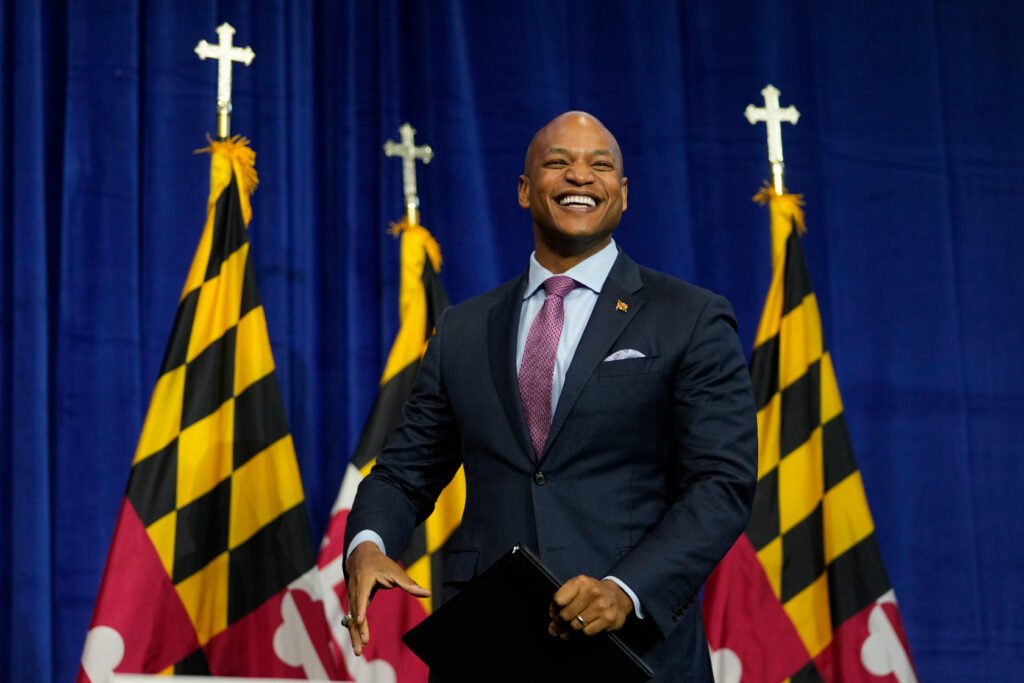Wes Moore, a Democrat, celebrity author and former nonprofit executive, won Maryland’s election for governor, defeating a far-right Republican and becoming the first Black governor of the state.

The chances of Cox conceding seemed to grow less likely as the night progressed. Cox’s daughter, Patience Faith Cox, urged watch party attendees not to worry and that they shouldn’t believe in the results. She added that it was an opportunity for the “media to try and prove their fake polls that they made up.” The crowd cheered in response.
In addition to the governor’s race, the Associated Press also called the race for Democrat Chris Van Hollen, who won reelection for his second term to the U.S. Senate, beating Republican opponent Chris Chaffee. Van Hollen, who was expected to win in the heavily blue state, has served as U.S. Senator since 2017.
Ballot Question 4 Legalizing Recreational Marijuana
Recreational marijuana is now legal in the state, according to a call by the Associated Press. As of 9:30 p.m. on Tuesday, nearly 65 percent voted in favor of Question 4, the referendum on the ballot that approves legislation state lawmakers passed this year allowing people 21 years of age or older to possess, use, and grow small amounts of marijuana.The referendum was expected to pass – a Goucher Poll in March showed that 62 percent of Maryland residents supported legalization.Eugene Monroe, chairperson of the Yes On 4 campaign in Maryland and former Baltimore Raven, says that this moment is “monumental” – one that he and other advocates have pursued for years.“The people in Maryland have waited far too long,” he says.Monroe says this is an opportunity to bolster the local economy and create new jobs. He also says tax revenue from regulating the industry could be spent instead on education, public health, and public safety. Law enforcement would be able to focus more of its limited resources on tackling violent crime.More than a thousand people were arrested last year for marijuana possession in Maryland. Officers across the country tend to disproportionately arrest Black residents even though Black and white residents use marijuana at similar rates.It’s still unclear how long it will take lawmakers to set up the industry and how it will be regulated and taxed. It took years to do so when medical marijuana became legal in Maryland in 2014. Monroe says it’s critical that Maryland creates “equitable opportunity” for new operators and Black-owned businesses.That was not the case with the medical marijuana industry: the state initially did not issue any of its limited licenses to Black-owned businesses, despite the fact that about one third of Maryland’s population is Black. Dispensaries are also not equitably located. In the majority Black city of Baltimore, for example, the vast majority of dispensaries are located in wealthier, mostly white neighborhoods.Monroe says he anticipates a greater push for equity this time, and hopes that this time the legislature will move faster to set the industry up.“Just hoping there is a clear pathway for those tax dollars to reach those communities in Maryland that have been disproportionately damaged by the drug war,” he says.